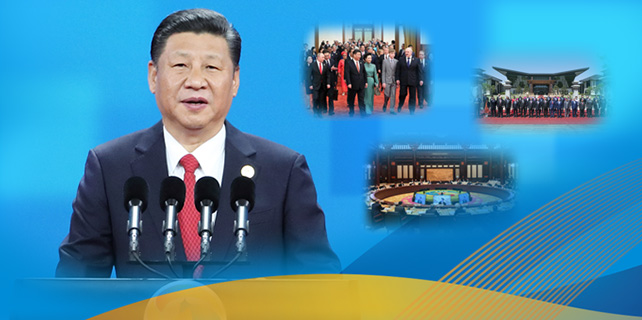Understanding the great potential of Chinese investment in the US
BEIJING - Record high Chinese investment in the United States in 2016 demonstrates that Beijing's economic agenda is compatible with the US economic goals, not the other way around.
A report co-authored by the Rhodium Group and the National Committee on US-China Relations shows Chinese companies invested $46 billion in the United States last year, tripling the amount seen in 2015, sending two-way direct investment to a record high.
The report characterized past two-way investment as a "one-way street," with money flowing predominantly from the United States to China. But now, investment is a "two-way highway" with tens of billions of dollars in annual FDI flowing in each direction.
While the US administration worried Chinese manufacturing could threaten US jobs and its economy, Chinese companies are bolstering the US economy by creating jobs and paying taxes.
In the last seven years, employment by Chinese-owned firms in the United States had jumped ninefold to 140,000 jobs last year. By the end of 2016, all 50 states and 98 percent of congressional districts hosted operations of Chinese companies.
According to John Ling, president of the Council of American States in China, more and more US states are increasing recruitment efforts to help land the next Chinese manufacturing project. He believes this will "give more leg" to a healthier bilateral economic relationship.
While notable progress been made, there is huge room for expanding the footprint of Chinese investors in the United States.
With China transitioning away from an export-driven economy to one led by consumer spending and services, Chinese investors have begun to shift their target industries in the United States away from traditional energy and real estate industries to consumer services and the high-tech sector.
According to the joint report, more than 90 percent of Chinese FDI in the United States in 2016 focused on services and advanced manufacturing.
Chinese drugmaker Qilu Pharmaceutical offers the latest example. It invested over $40 million to open an innovation hub and expand its business presence in Boston, the pharmaceutical innovation hub in the United States.
Boston mayor Martin Walsh has lauded Qilu's partnership, which helps reinforce the city's reputation as a global champion of life science research and development.
While Qilu could capitalize on Boston's rich R&D resources to upgrade its product mix, it also helps turn state-of-the-art ideas into reality in the world's largest consumer market.
The great rebalancing of the Chinese economy offers a historic chance to expand Chinese investment in the United States. Understanding this great potential will also help build constructive US-China relations in the 21st century.









